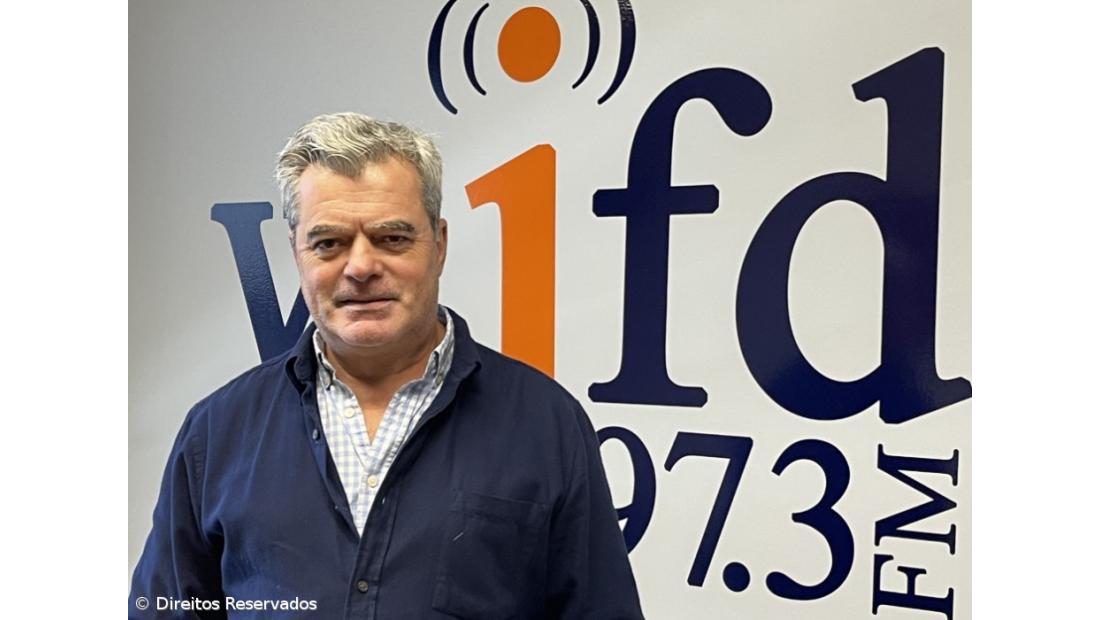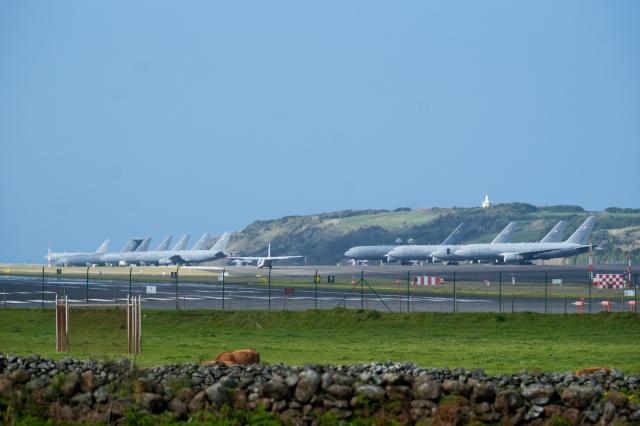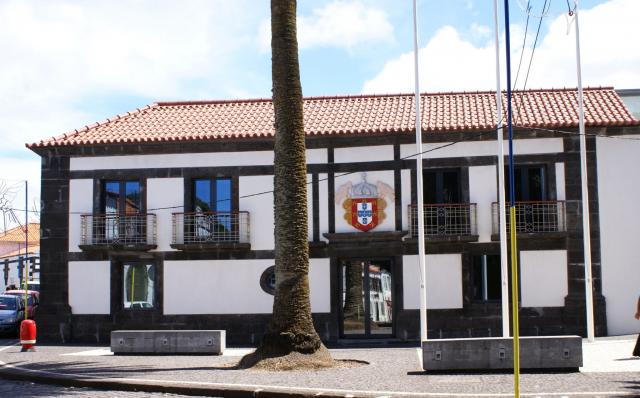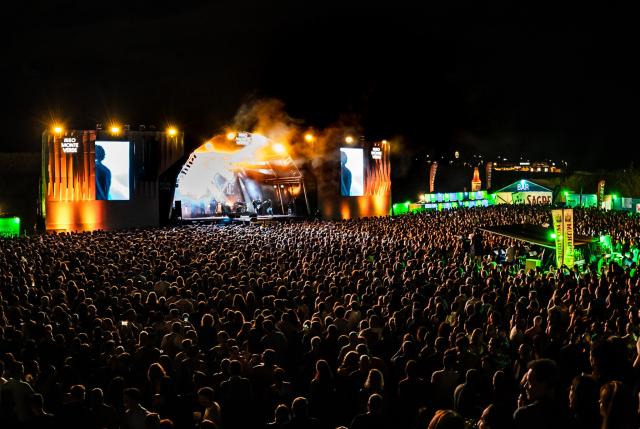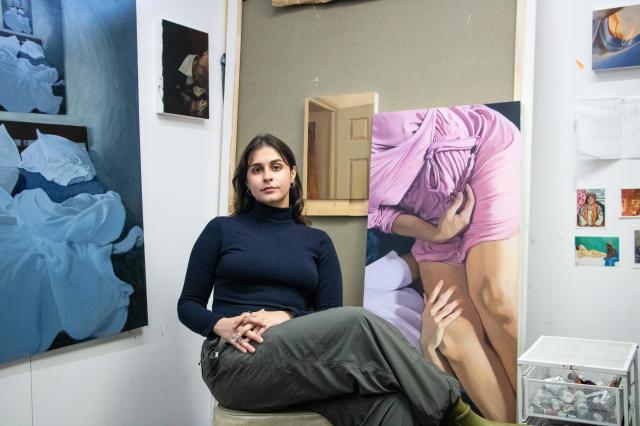When did you move to the United States of America?
After completing the former fifth grade at Externato de Santa Maria, in 1977, my goal had always been to come to the United States to study. Therefore, the year was 1977.
Do you remember that trip?
I do not have clear memories. I was used to visiting the United States and I was already very fond of the country when I arrived here.
What was your first job, do you remember?
I was 15 years old when I took my first job. I went to work on the political campaign of Alfred Vellucci, who was running for Mayor of Cambridge, Massachusetts.
Have you ever thought about returning to the Azores?
Before the pandemic, I spent several weeks on Terceira Island, in summer and winter. My wife, Paulina, is from Terceira and we have a house in Praia da Vitória. Our goal is to preserve this good habit and also to spend more time in Santa Maria, where my parents have a house (where I spent my childhood) in the beautiful bay of São Lourenço. Paulina and I have a great personal connection to the Azores.
When did your path intersect with radio and why did you decide to invest in WJFD-FM?
In 1992 I met Dr. Edmundo Dinis, then owner of WJFD, and from then on I became the company's lawyer. I invested in WJFD, first, because I got used to defending this great radio, a very important radio for the Portuguese-speaking community in New England, whose frequency has been broadcasting in Portuguese since the 50s. And with rare power: there are only approximately 8 stations in the state of Massachusetts with such power. A rarity. It was worth investing.
WJFD is recognized as the most important radio in the Portuguese-speaking community in the United States. What is your coverage level, how far do you go?
It is a radio with 50,000 watts of power in FM. Our coverage area is huge. It covers 6 states and goes far beyond the protected area, which is the main coverage because we have always had a great and continuous concern to protect our signal. That is why WJFD today benefits from an excellent ground signal in New England.
In 2019 the radio had to present an explanation to the North American regulating entity (FCC), as it intended to reduce the power of your signal. How did you solve this issue?
The problem was not exactly their intention to reduce power. It had to do with requests from other radios to use our frequency in various parts of New England, in areas that are off our main coverage, but where some of our listeners are. We managed to overcome all these initiatives. But the biggest problem occurred in 2018 when the FCC suggested to limit our right of objection. In the process, the FCC recognized the importance of radios like WJFD and thus granted us an exemption. Paulina and I followed this whole process with great interest. Actually, it was our personal involvement that took us to Washington DC to defend and support this same exemption.
What is then the importance of radio for the Portuguese community? Are there other communities listening to WJFD?
WJFD is very important to the Portuguese community. We broadcast news and other information from Portugal; we have news from the states of Massachusetts (MA) and Rhode Island (RI), local news and information from the US Federal Government; soccer reports; music and entertainment. WJFD was born when the community started to grow and develop in the area. New generations listen to us because of the news from Portugal and the community, the music that is currently made in Portugal and soccer. We also support major cultural music initiatives, such as the IPMA (International Portuguese Music Awards). We are the link between all Portuguese communities in New England, as well as a link between various generations. We keep company to our listeners during working hours and on their way to work. We keep company to the elderly and the sick at home. Everyone turns to us for information relating to emergencies or to acquire some new information, such as during the pandemic. There are Americans who listen to us because they want to listen to a different radio station; and the Latino community also listens to us.
WJFD established a partnership with Antena 1. How does this collaboration work?
Through this partnership, we broadcast news from Portugal and the world, soccer matches and other RDP-I programs of interest to the community, especially in the evenings and on weekends.
The world of communication has undergone a profound transformation that has also changed the way radio is made. And how did your radio adapt to this new reality?
In the last 20 years there have been big changes in radio. With new technologies and available equipment, radio has become more dynamic and professional. It is important to be aware of new equipment and technologies. The training of radio professionals is also important, the way radio relates to the audience has changed. Our presence on social networks, such as Facebook, or on smartspeakers, like Google Home and Alexa, or even the fact that we are the only radio station in Portuguese that is part of the iHeartRadio platform, are essential because we can reach other audiences anywhere in North America. We must keep up with changes and trends in radio or we will stagnate.
During the most difficult moments of the pandemic, how was your daily life?
We continued to broadcast every day, but we had to change the schedule because our hosts were working from home. We focused our work on disseminating information related to the pandemic. Every day we had interventions by a Portuguese doctor, Dr. Helena Martins, who, with Jorge Morais, general director of WJFD, spoke about the latest events and developments related to the pandemic. At the beginning of the pandemic, little was known about COVID and Dr. Martins kept informing and educating the community about the latest events and developments, as well as about what precautions to take. We also had António Cabral, member of the Massachusetts House of Representatives, on a daily basis, speaking with WJFD's production director, Carlos Félix, in an information program about new laws and regulations related to the pandemic, such as applications for unemployment benefits, support for companies, health insurance and even about what to do when someone could not pay their rent or mortgage. We also had other guests, on a daily basis, as well as local entities and doctors, to disseminate important information to the population. We collaborate directly with the Massachusetts Governor and the Attorney General. At that time, and especially during confinement, we had large audiences. We were not only their main vehicle of information, but also a company for listeners.
What role did the radio play in the community? Did you follow the situation in the Azores?
Part of the interventions of António Cabral and Carlos Félix was to monitor the evolution of the pandemic also in Portugal, including in Azores and Madeira.
Are the Azores in particular and Portugal in general well-informed about the daily life of the Diaspora?
No! I think Portuguese people still look at Portuguese communities the same way they did when they arrived here. Another problem is that they look at all communities equally and the reality of MA and RI is very different that of CA and NJ. And the difference is even greater when in we consider Europe and Brazil. The Portuguese have been in MA and RI for over 100 years, so there are multiple generations of Portuguese; many of them were born here, but are still connected to Portugal, although in a different way from that of the first generations. The community grew, evolved, educated itself, created large companies, and integrated itself; also, we cannot forget the acculturation process.
When people come here with the objective of getting to know the community, I think they end up not really doing it; they always talk to the same people and only listen to what they want to hear and, of course, it's always very fast.
Sometimes there is the idea that in the Azores and Portugal we turn our backs on the Diaspora... Is it a wrong idea from your perspective?
The idea we had before the pandemic was that there was a great imbalance between Portugal's interest in convincing the Diaspora to invest in Portugal and tourist access to Portugal by the Diaspora. There was no need for it to be so difficult to visit the Azores and mainland Portugal, in terms of travel costs, availability and transport efficiency.
Who can enhance the relationship between the two sides of the Atlantic? And what can be done?
I think it starts with really wanting to know and listen to the community. Also, using more social communication; Portugal spends millions around the world making the country and its products known, but not by using the social communication of communities. The message given to us is that we have an obligation to do this free of charge. Diaspora media are private companies. In the case of WJFD, there are huge operating costs; we live exclusively on advertising, and we have no duty to promote anyone for free.
Are Azoreans unaware of the Diaspora's reality in the 21st century?
Yes. The idea I have is that they still see the Portuguese in the US as immigrants with little education/training; an old image that has not been updated. The community has evolved, just as Portugal has evolved. For example, in the Southcoast of MA and RI, Portuguese communities have a great economic and sociocultural impact. There are large companies and professionals with a very high level of training...
And the Diaspora knows the 21st century-Azores?
Yes, but not much. At WJFD, we try to inform and publicize as much as possible about how Portugal has also changed and what is the Portuguese reality at the moment. Like the excellent music that is made in Portugal, gastronomy, new Portuguese products, literature, art, etc.

